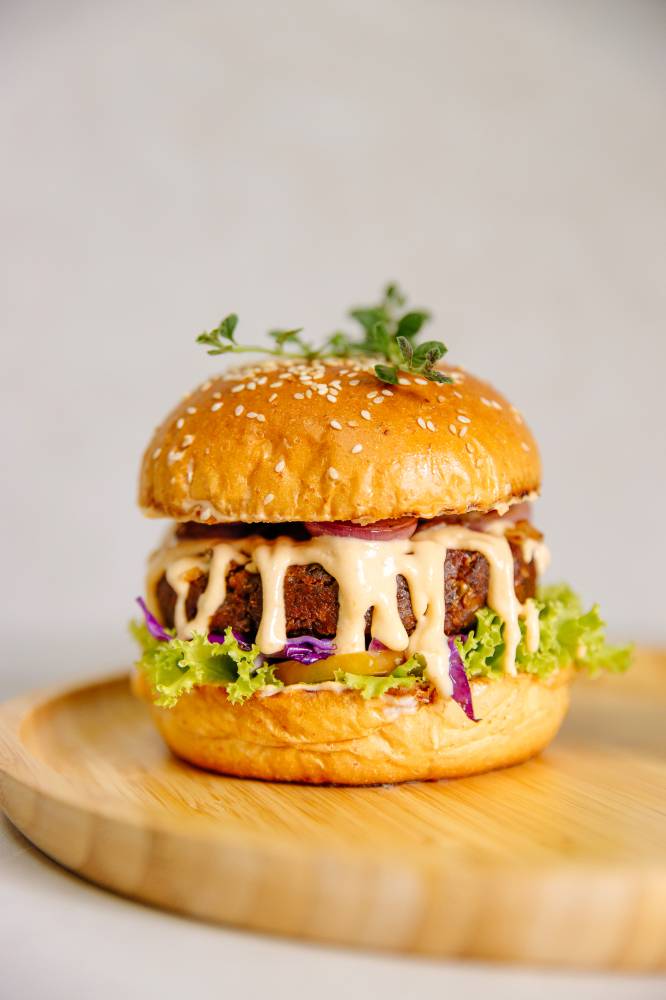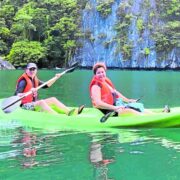Bespoke escape meets personalized wellness in Tagaytay

Anya, a luxury resort in cool Tagaytay, distinguishes itself with bespoke guest experiences that go beyond its heated pool and wellness center. The resort’s wellness packages offer a curated experience, featuring customized aromatherapy in guest rooms tailored to individual needs, nutritious personalized menus, one-on-one Aquafit classes, and other customized requests.
To further enrich the guest experience and connect visitors with Tagaytay’s culture, Anya has partnered with Museo Orlina. This collaboration brings sculptor Ramon Orlina’s traveling exhibit, “Visions in Glass,” into the resort’s living space.
Orlina, known for his distinctive green prismatic sculptures crafted from locally sourced glass, also incorporates imported materials. Amber, white with varied effects, purple, and pink glass blocks are meticulously cut, ground, and smoothed by Orlina, while an assistant polishes the pieces, creating scintillating patterns of color and light.
Complementing these artistic and personalized wellness offerings, Anya’s award-winning Niyama Wellness Center has launched its “Mindful Conversation” series, featuring expert-led talks on various well-being topics.

Lifestyle coach Marilen Elizalde discussed the impact of hormonal changes on women’s health and emotions, and gave practical advice on weight management and metabolic health. She explained the body’s natural ability to switch between sugar and fat-burning modes. While younger bodies efficiently process glucose, aging often hinders access to fat reserves. This challenge, she noted, stems from modern, readily fed lifestyles and food deliveries, a stark contrast to our ancestors who experienced periods of fasting.
Sugar burning occurs when we consume food, particularly carbohydrates, providing immediate energy. Fat burning, conversely, kicks in after an extended period, roughly 12 to 13 hours, without food, allowing the body to utilize stored fat. However, constant access to food, facilitated by delivery services and processed snacks, prevents this crucial metabolic shift.
Holistic wellness
The effects of remaining perpetually in sugar-burning mode are significant. Excess glucose is stored as fat, hindering weight loss and overall health. Conversely, engaging in daily metabolic switching, through time-restricted eating or fasting, allows the body to repair and rejuvenate. The liver releases stored sugar, the gut heals, and the brain clears toxins. Importantly, this process strengthens the immune system, as viruses thrive on glucose.
Elizalde preferred the term “time-restricted eating” over “fasting,” making it less intimidating. She outlined various fasting protocols, each with distinct benefits: intermittent fasting (13 to 15 hours), autophagy (17 hours), gut reset (24 hours), fat burner (36 hours), dopamine fast (48 hours), and immune reset (72 hours). These fasts promote cellular cleanup, detox, and weight loss.
This focus on holistic wellness complements Niyama’s recent accolades. Last year, the spa received the Best Luxury Boutique Resort Spa and Best Luxury Wellness Center awards for Southern Asia at the 2024 World Luxury Awards. The recognition stemmed from Niyama’s sustainable practices such as use of organic materials in treatments, locally sourced virgin coconut oil, and fresh ingredients from its garden. The integration of coffee grains in glow scrubs, and papaya, pineapple, and ginger in body treatments, further illustrates this.

Building on this success, Anya has introduced a comprehensive wellness package that combines accommodations with a full-board meal plan, featuring the Soul Menu and a variety of massages. Guests can customize their experience by choosing from various stay durations. The program includes revitalizing activities and treatments, such as infrared sauna detoxification, detailed body composition analysis, and personalized IV drip therapy. Overseen by Dr. JP Prado, the IV therapy offers options for detox, sleep enhancement, relaxation, immune boosting, and energizing.
While Samira by Chele Gonzalez has gained acclaim as Tagaytay’s top-rated restaurant on TripAdvisor for its Spanish and continental cuisine, the plant-based Soul Menu, designed by consultant and nutritionist Cinty Yniguez, provides an option for guests with dietary restrictions.
Plant-based foods
The new items pushed the boundaries of flavor and technique in plant-based foods. The lentil meatballs were as crunchy as falafel. They were made by soaking lentils, lightly pulverizing them, and combining them with nutritional yeast, beetroot powder, herbs, and spices. The bolognese sauce was a blend of oyster, shiitake, and porcini mushrooms, contributing a rich umami flavor.
The eggplant unagi surprised palates by achieving its savory notes through a marinade of miso and mirin, cleverly sidestepping the usual soy sauce. The secret lays in the marinade and the meticulous grilling process, which mirrored the traditional preparation of eel.
Another culinary triumph, the vegan tuna tartare, had a creamy avocado base, reminiscent of guacamole but with a kick of wasabi. A coconut-derived liquid, similar to soy, when combined with vacuum compression, transformed the watermelon’s texture into something akin to tuna.

The vegan chocolate mousse showcased the richness of locally sourced ingredients. Executive chef Chris Leaning championed the high-quality chocolate from Batangas, a region not typically associated with cacao production. He praised the young chocolatiers who had revitalized their family’s legacy, emphasizing the intense flavor of their cacao. The mousse’s silky texture was achieved through the use of a stable vegetable-based cream. Leaning explained that the Soul Menu’s distinctive tastes and high quality stem from the time and care put into each dish.
Anya Resort prioritizes guest satisfaction by meticulously catering to individual dietary needs. Once, the resort had a Jewish Australian guest requiring kosher meals. To ensure strict adherence to kosher laws, the hotel purchased brand-new cooking equipment, including pans, bowls, and chopping boards, as even thorough cleaning of existing utensils would be insufficient.
The guest was shown the unopened packaging to verify their pristine condition. He personally inspected meats and fish before cooking, primarily consuming whole fish that were meticulously cleaned to remove all traces of blood. During preparation, he observed every step, from washing the ingredients to the cooking process itself. Finally, wax paper was used as a barrier on serving plates to prevent direct food contact.
Leaning understood the complexity of kosher dietary laws, noting restrictions on combining beef and dairy, and prohibitions on shellfish and bottom-dwelling fish. The guest, who primarily consumed round fish and vegetables, said he had never experienced such attentive service in any other hotel.

















